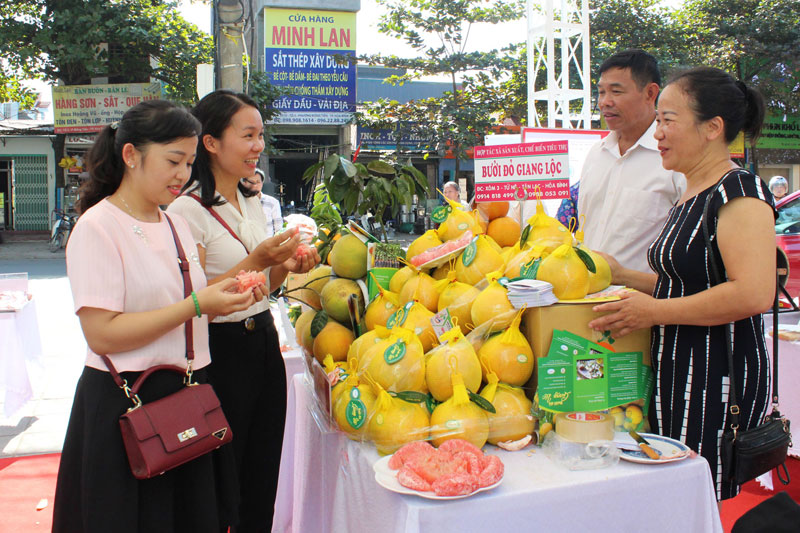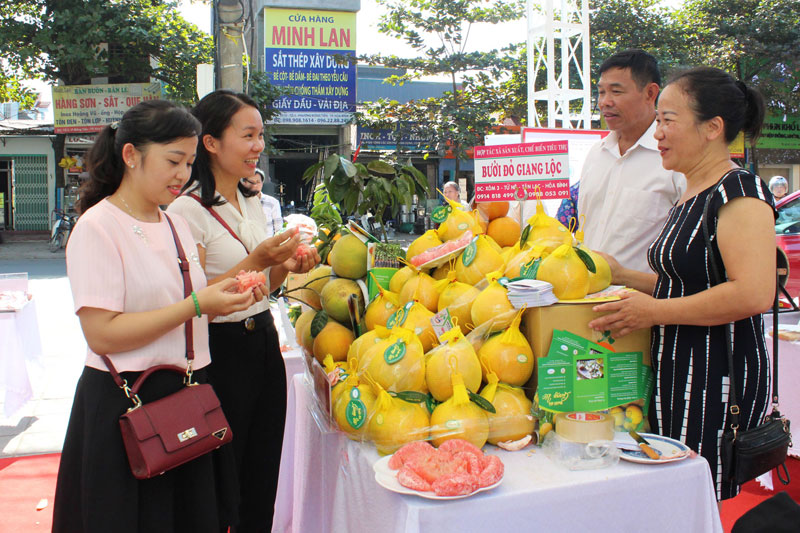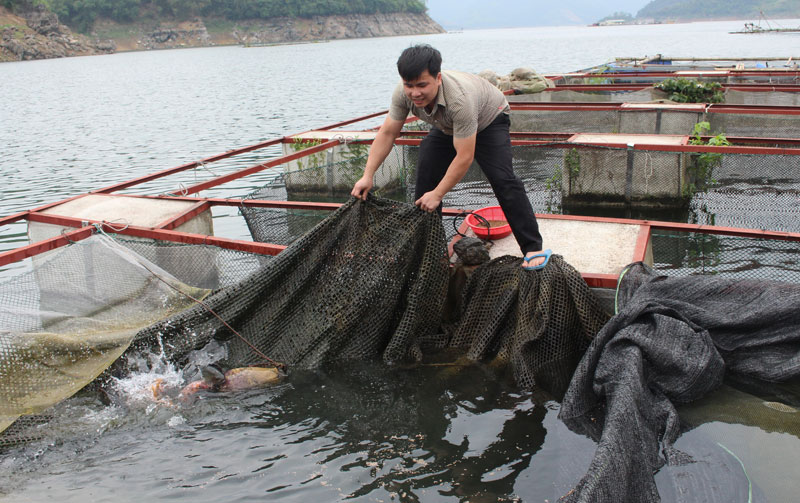
(HBO) – Besides serving as a key to unlock potential markets, brand development also helps protect the position of local businesses in the context of fierce competition. Many companies have grasped the opportunities to elevate the value of their agricultural products to a new height.

Tan
Lac red-flesh grapefruit receives collective brand in 2017.
Together
with Cao Phong orange, Luong Son organic vegetable was chosen as a gold brand
of Vietnamese agriculture in 2016. A year later, the two products and Son Thuy
longan were listed among the top 157 outstanding agricultural products of the
nation.
According to Phung Thi Lan, Chairwoman of Luong Son district farmers’
association and head of the Luong Son organic vegetable production group, organic
vegetable cultivation has brought stable income to farmers in Hop Hoa, Nhuan
Trach, Hoa Son, Thanh Lap, Cu Yen, Cao Ram communes and Luong Son town. The
vegetables have gained a firm foothold in some hard markets like Hanoi, winning
trust from consumers.
Local production groups and cooperatives have paid due attention to building
brands for their products. In the past 2-3 years, brand names have been
developed for tens of agricultural products in the province. In the end of
2017, Lac Thuy orange received prestigious brand protection and shortly after
that, Tan Lac red-flesh grapefruit achieved recognition in intellectual
property.
Other famous brands in the province are ruou can (wine drunk through pipes),
Tan Lac chayote, Da River fish and shrimp, Lac Thuy chicken, La Son chicken,
Hoa Binh honey and Hoa Binh sugar cane, among others.
According to Vuong Dac Hung, Vice Director of the provincial Department of
Agriculture and Rural Development, gaininging a brand name means the products
having a foothold in the market.

Hien
Luong agro-forestry production and business cooperative in Da Bac district is
completing procedures to gain brand recognition for its Da River fish in 2018.
To win the consumers’ faith, farmers cultivating Luong Son organic vegetables
have to attend training courses and get practice for a long period of time.
They obey five "no” principles during the cultivation, including no chemical
fertilisers, no genetically modified materials, no stimulants and no pesticides.
Along with the geographical indication certificate, farmers in Cao Phong district
have produced safe oranges in line with the VietGAP standards to appeal to the
market’s tastes.
Areas for VietGAP orange cultivation have been expanded. Currently, 315 local
households are planting the fruit on 423,36 hectares. Cao Phong organge has
affirmed its prestige, thus bringing stable and sustainable benefits to
growers./.
According to data from the Hoa Binh Provincial Party Committee, the industrial production index for the first six months of 2025 is estimated to have increased by 20% compared to the same period last year. This marks the highest year-on-year growth rate for this period since 2020.
In the first six months of 2025, Hoa Binh province’s export turnover was estimated at 1.145 billion USD, marking an 18.11% increase compared to the same period in 2024. Import turnover was estimated at $ 804 million, a 17.15% increase, which helped the province maintain a positive trade balance.
The lives of the ethnic minority farmers in Tan Lac district have gradually improved thanks to the new directions in agricultural production. This is a testament to the collective strength fostered through the professional associations and groups implemented by various levels of the district’s Farmers’ Union.
With the motto the "product quality comes first,” after nearly one year of establishment and operation, Muong village’s Clean Food Agricultural and Commercial Cooperative, located in Cau Hamlet, Hung Son Commune (Kim Boi district), has launched reputable, high-quality agricultural products to the market that are well-received by consumers. The products such as Muong village’s pork sausage, salt-cured chicken, and salt-cured pork hocks have gradually carved out a place in the market and they are on the path to obtaining the OCOP certification.
In the past, the phrase "bumper harvest, rock-bottom prices" was a familiar refrain for Vietnamese farmers engaged in fragmented, small-scale agriculture. But today, a new spirit is emerging across rural areas of Hoa Binh province - one of collaboration, organisation, and collective economic models that provide a stable foundation for production.
Maintaining growing area codes and packing facility codes in accordance with regulations is a mandatory requirement for agricultural products to be eligible for export. Recently, the Department of Agriculture and Environment of Hoa Binh province has intensified technical supervision of designated farming areas and packing facilities to safeguard the "green passport" that enables its products to access international markets.




